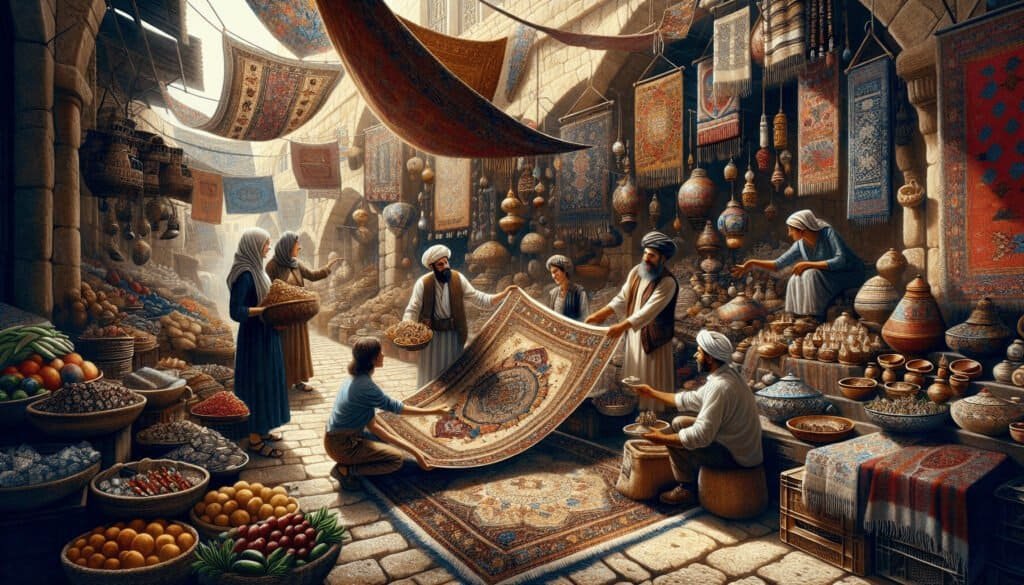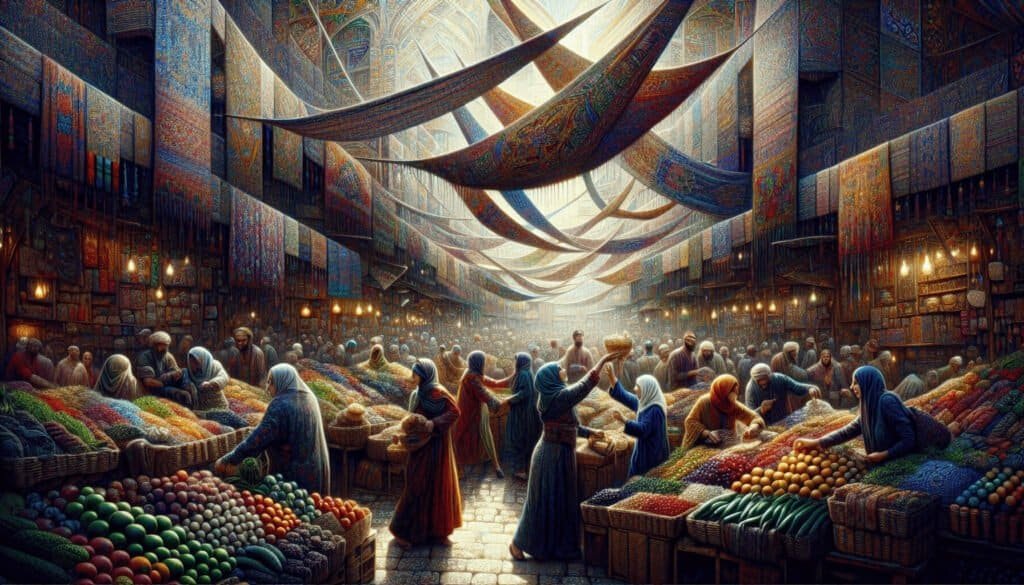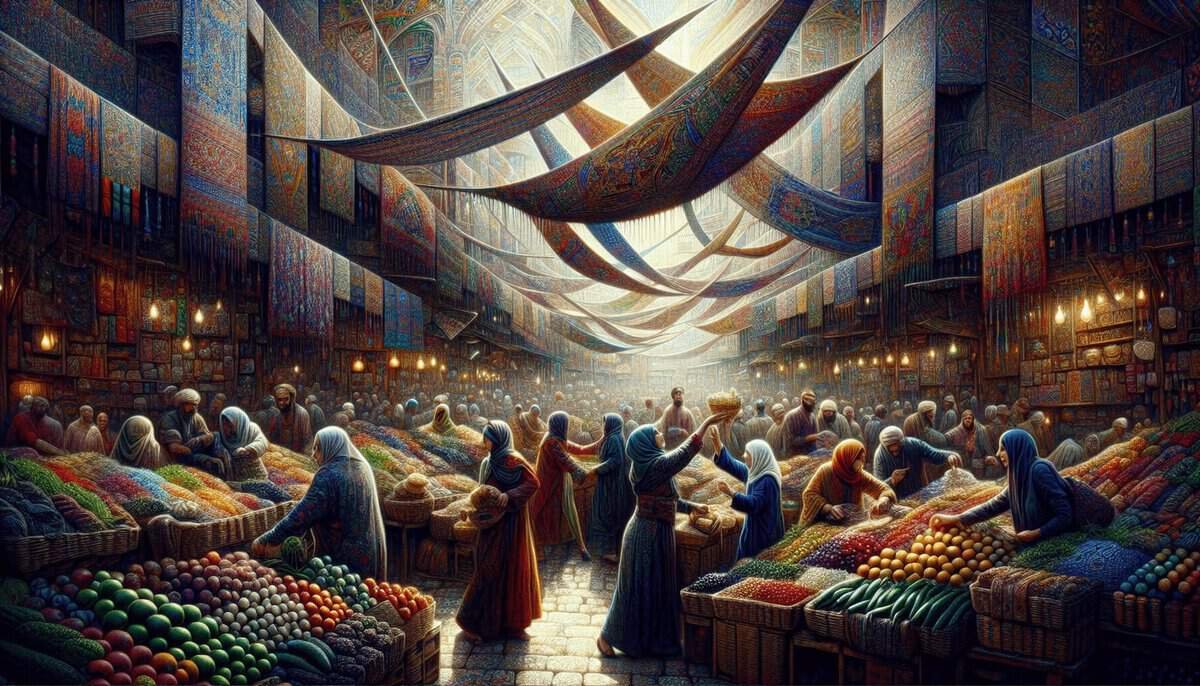What if I told you that the simple act of shopping could be a profound experience that touches upon centuries of culture, conflict, and community? In the heart of Jerusalem, the market stands as a testament to both resilience and fellowship. While the area around you may reflect a long history of oppression, the market pulses with life, stories, and connections that defy such circumstances.

A Journey Through Time: The Historical Context of Jerusalem
Jerusalem isn’t just any city; it’s one of the oldest cities in the world, rich with historical and spiritual significance. This vibrant market sits upon a topography layered with history, from ancient hills where prophets once walked to bustling streets echoing the cries of vendors over centuries.
The city has been a focal point for three major religions: Judaism, Christianity, and Islam. This influences local culture and the market atmosphere, making every corner a living piece of history. As you stroll through the market, consider how past events shape present realities and community interactions.
The Importance of Trade in Jerusalem’s Evolution
Trade has always played a vital role in Jerusalem’s development. Historically, the city has been a melting pot of cultures, religions, and languages, creating a unique blending pot that thrives today. The markets served not just as places to acquire goods but as significant social hubs where relationships were forged, and factions negotiated their existence in a complex society.
- Old City Markets: The Old City is home to several markets, each with a specialized theme, from spices to textiles. Engaging with vendors offers insights into how traditions are maintained and adapted over time.
- Global Influence: The past centuries brought various influences, including Roman, Ottoman, and British rule, each contributing layers to the market’s character.
The Market as a Hub of Fellowship
Fellowship in the Jerusalem market transcends mere commerce; it’s about building connections amidst hardship. Vendors often share stories of resilience, familial traditions, and survival strategies, making every transaction a dialogue.
Building Connections Amidst Diversity
What makes this market particularly enchanting is its inherent diversity. You’ll find Jewish, Muslim, and Christian vendors, all coexisting and collaborating despite the ongoing political tensions surrounding them.
- Shared Spaces: Many vendors unite under a collective understanding that their lives depend on mutual cooperation and support. The camaraderie fostered in trading goods transcends the barriers imposed by the world outside.
The Role of Food in Fostering Fellowship
Food serves a crucial role in building communal ties. Within the market, it’s not uncommon to find delicious local delicacies being prepared right in front of you, wafting aromas that draw you in.
- Street Food: From falafel to baklava, each bite represents a piece of culture and history, often served with a smile and a story. These culinary delights create connections that break down barriers.
Creating a Shared Narrative
When you share food, you’re engaging in a time-honored tradition that is both fundamental and universal. The market space becomes a canvas where individuals from various backgrounds can paint a shared narrative, bridging the gaps between them.
- Stories Passed Down: Many stalls feature recipes that have been passed through generations; this creates a sense of ownership and pride that permeates the market atmosphere.
The Challenges of Oppression
What happens when fellowship encounters the hard reality of oppression? The Jerusalem market embodies the paradox of flourishing community amid imposed restrictions. You might notice how oppression shapes the dynamics of interaction, creating an environment where every smile carries stories of struggle.
Navigating Political Tensions
The market sits within a politically charged environment, a reality that affects the ways people engage. Vendors often find themselves navigating tricky waters, balancing their needs for commerce with the reminders of conflict.
- Coping Strategies: Many adopt coping mechanisms like humor or hospitality to subvert the oppressive atmosphere, creating moments of joy amidst the tension.
Gritting Teeth and Carrying On
Resilience becomes part of the market’s fabric. The act of continuing to set up stalls, sell products, and engage customers becomes an act of defiance against adversity.
- Stories of Resistance: Conversations often arise around tales of resistance, whether they be personal stories of survival, community struggles, or historical references that connect the present to the past.
Influence of External Forces
The marketplace is not just shaped by the people within it but is also impacted by external political forces. Restrictions, checkpoints, and varied regulations can affect how vendors operate on a daily basis.
- Adaptation and Innovation: Vendors innovate to overcome these challenges, leading to creative solutions that ensure the market’s continuation despite the odds.
Cultural Significance of Jerusalem Market
The rich tapestry of the market’s culture permeates every exchange made within its confines. It acts as a microcosm of Jerusalem itself—every purchase becomes a dialogue steeped in tradition and continuity.
Preserving Cultural Heritage
Each stall is imbued with history and a commitment to cultural preservation. This devotion manifests in their products, crafts, and the way people interact.
- Handicrafts: Many vendors specialize in traditional handicrafts that reflect the city’s past. You might feel the weight of history in the intricate designs and time-honored practices that are on display.
Festivals and Celebrations
Cultural events often take place within or nearby the market, further solidifying its role as a community hub. Festivals become an opportunity for people of diverse backgrounds to celebrate their identities.
- Market-wide Celebrations: During holidays, the market becomes alive with decorations, music, and food. This sense of joy during communal celebrations stands in stark contrast to everyday challenges, creating a temporary haven of unity.

The Vendor Experience
If you have the chance to interact with the vendors, their stories will reveal that they are far more than businesspeople; they are custodians of tradition and storytellers of resilience.
Personal Stories of the Vendors
Each vendor has a unique narrative shaped by generations. These tales of personal struggles and triumphs reflect wider societal issues, yet they also resonate with themes of hope and perseverance.
- A Day in the Life: Picture an early morning where vendors set up their stalls before the sun rises, sharing laughter and breakfast as they prepare for a bustling day—a sentiment of community that often gets overlooked.
Generational Business
Many family-run businesses receive patronage from locals and tourists alike, allowing the next generation to learn the art of commerce while infusing modern elements.
- Passing Down Skills: You might see younger vendors passionate about continuing their family legacies, blending traditional crafts with innovative ideas, breathing new life into age-old practices.
The Marketplace as a Learning Space
Every corner of the market becomes an opportunity for you to learn something new. Influences blend and collide in the atmosphere, reflecting the cultural symphony of Jerusalem.
- Workshops and Classes: Some vendors offer informal tutorials, teaching skills such as spice blending or traditional cooking, making learning a collaborative and interactive experience.
Moving Forward: The Future of the Jerusalem Market
What lies ahead for the market is shaped by both its present dynamics and future aspirations. The intricate balance between cultural cohesion and external pressures remains a guiding theme.
Hope Amidst Uncertainty
Despite political uncertainty, the market fosters a sense of hope. Many vendors believe that cultural heritage can transcend barriers, paving the way for dialogue and understanding.
- Building Bridges: Numerous initiatives exist aimed at fostering interfaith dialogue through trade and collaboration, proving that economic ties can lead to stronger relational bonds.
The Role of Technology
As the world changes, so does the market’s approach to exchanging goods. Technology is becoming an ally in this age-old practice, helping vendors connect with a broader audience.
- Online Platforms: Many vendors are embracing digital commerce, allowing them to bridge local and global markets, presenting opportunities they didn’t have access to before.
Engaging the Next Generation
How do you ensure the future of such monumental traditions? Involving younger generations is key. Teaching them the significance of their cultural practices and the market’s influence ensures continuity.
- Youth Programs: Programs aimed at empowering youth through entrepreneurship and cultural education help ensure that the market remains a living expression of the diverse cultures at play.
Conclusion: The Enduring Spirit of Jerusalem Market
The footfalls you hear on the cobblestones echo stories of resilience, bravery, and community. Each vendor’s tale adds depth to the market, transforming it from a physical concrete space into an emotional landscape marked by shared experiences.
As you immerse yourself in this singular experience, remember that the stories unfold beneath the surface—stories of fellowship forged amidst oppression, birthed out of resilience and hope. The Jerusalem market is not just a locality; it’s a living testament to the power of community and culture triumphing over adversity.
In a world often polarized by conflict, the fellowship you witness in the market transcends religious and cultural divisions, reminding us all that shared humanity can flourish even in the most challenging of environments.



